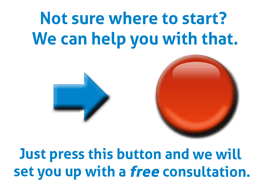Red Release Date - What You Need To Know
Many folks are always curious about when new things come out, especially when it comes to things they love, like games or other digital experiences. It's a common thought, you know, wondering about the next big arrival. When people talk about a "red release date," it often brings to mind a sense of anticipation, a moment marked on the calendar for something special to arrive. That feeling of waiting for something you're really looking forward to is pretty universal, and it shapes how we interact with the things we enjoy.
Sometimes, the chatter around a specific "red release date" might make you think of big, well-known titles that everyone talks about, like a certain western-themed adventure that gained a lot of popularity. But honestly, there's also a quiet joy in discovering other worlds, perhaps ones where you can just roam around and meet other folks, like in a desolate land where you build and explore. It’s a different kind of fun, a bit more relaxed, I suppose.
This piece is going to look at different parts of what a "red release date" can mean, touching on various experiences and communities. We'll chat about things from getting into a favorite game to how online groups connect, and even a little about historical records and online quizzes. It's all connected to how we get new information or new experiences, and what that moment of something becoming available feels like.
Table of Contents
- Red Release Date: Finding Your Digital Playground
- What About the Red Launcher and its Red Release Date?
- Connecting with Others Around a Red Release Date
- Can a Red Release Date Be About Sports History?
- How Do Communities Form Around a Red Release Date for Something New?
- Making Online Sharing Easier After a Red Release Date
- Red Release Date and the Everyday Quiz
- Why is Accuracy Important After a Red Release Date?
Red Release Date: Finding Your Digital Playground
When you think about a "red release date" for a big game, it's pretty common for many folks to immediately think of something like that popular western adventure, the second one in the series, you know? And that's totally fair, I mean, it's a huge title, and lots of people really enjoy it. But for me, personally, there's a real joy in just roaming around in a different kind of world, one that might not always get the same amount of attention, like that post-apocalyptic place where you build and live. I find myself just moving from one player's settlement to another, taking a look at what others have built and how they've set things up. It's a very peaceful way to spend some time, really. You get to see a bit of everyone's creative side, and it’s a nice way to feel connected without having to be in constant action.
That feeling of quiet discovery, it’s a bit different from the high-energy experiences some games offer. You might not have a specific mission in mind, just a general wish to see what's out there. It’s like a digital stroll, if you will, where the scenery changes with each new person's place you come across. This kind of interaction, just observing and appreciating, is a quiet pleasure that many people might overlook when they're thinking about the next big thing. It shows that sometimes, the simple act of presence and observation can be quite fulfilling in a digital space.
What About the Red Launcher and its Red Release Date?
For those of us who use different ways to get our games, there can be a little bit of confusion sometimes. I have this particular application on my computer, the one from GOG, and I have a working account with it. But then there was this other thing, this "red launcher," and honestly, it made me scratch my head for a bit. I wasn't quite sure what it was or how it fit in with everything else. It felt like an extra step, or maybe something I needed to figure out before I could get to what I wanted to do.
It turns out, though, that the "red launcher" was just part of the package all along. It was included, which was a bit of a relief, you know? That initial bit of puzzlement quickly went away once I realized it wasn't a separate hurdle but rather something that was already there, ready to go. It’s like when you buy something new and you’re worried about putting it together, only to find out the hardest part is already done for you. That simple discovery made things a lot easier and less complicated than I first thought they would be.
Connecting with Others Around a Red Release Date
When something new comes out, or even just when people share a common interest, it’s really something to see how communities form. There are places online where people gather, and some of these groups become very important to their members. You have, for example, the main official community on a popular discussion website, the one that stands out among all the others that are considered official. It’s a spot where people feel like they can truly connect and talk about what matters to them, a kind of central gathering point.
This sense of belonging, it's pretty strong in these places. People go there to share ideas, ask questions, and just generally be with others who get what they're talking about. It’s more than just a place to get information; it’s a place to feel understood and to contribute to something bigger than yourself. That shared experience, whether it’s about a new product or a long-standing interest, really brings people together in a way that feels very natural.
Can a Red Release Date Be About Sports History?
Sometimes, when we talk about a "red release date," it doesn't have to be about something brand new appearing. It can also be about looking back at important moments in time, especially in things like sports. Consider the pitchers for a famous baseball team, the "Red Sox," who took the mound to start games in their championship years, like 2004, 2007, 2013, or 2018. What’s interesting is that these were also players who started their whole professional playing lives with that very team.
It's a way of remembering those specific times, those particular moments when these athletes stepped onto the field for the first time in their careers and then later, when they were part of something truly special for their team. It speaks to loyalty and growth within one organization, a kind of journey that many fans appreciate. This sort of historical reflection gives a lot of meaning to certain dates, even if they aren't about a fresh item hitting the market. It’s about the lasting impact of certain individuals and their contributions.
How Do Communities Form Around a Red Release Date for Something New?
When something new comes along, like a particular kind of stock, people often want to find others who share their interest. There's a particular community that has come together just for folks to chat about a specific stock, called "rcat." It's a place where people can exchange thoughts and observations about it. There was already a small group of people following this on another platform, but it felt like it was time to create a more dedicated space for discussion.
This move to create a new place for discussion shows a common human desire to connect over shared interests. Even if a group starts small, the need to talk, to share insights, and to learn from others often leads to the creation of new online spaces. It's about building a collective knowledge base and finding comfort in numbers, especially when dealing with things that can be a bit unpredictable, like market movements.
Making Online Sharing Easier After a Red Release Date
Sharing things online should be straightforward, but sometimes there are little technical quirks that make it a bit tricky. There was a situation where a particular type of link, one from "redgifs.com," might have caused some hesitation for people wanting to post them on that popular discussion website. This was because of how these links would show up, especially on phones, or how they would expand and embed on regular computers. It wasn't always a smooth experience.
However, a recent change made things much better. The link that was just put up, for example, now plays directly on mobile devices. And on the web, it works perfectly with the expand or embed features. This means that if you had any worries about sharing these kinds of links before, because of how they behaved on the site, those concerns should be gone now. It makes the act of sharing content much more user-friendly, which is always a good thing for online communication.
Red Release Date and the Everyday Quiz
Life often brings little moments of learning and fun, and sometimes these come in the form of daily questions. Think about those daily quiz questions you find on the homepage of a certain well-known search engine, the one from Microsoft called Bing. They offer these little bits of knowledge every day, and you can find the answers right there too. It's a small, consistent way to engage your brain and pick up new facts.
This kind of regular, brief engagement is a nice addition to a daily routine. It’s not about a huge, dramatic "red release date" for a major product, but rather a steady stream of new information, a little bit each day. It shows how even small, consistent offerings can create a sense of anticipation and enjoyment for people looking for a quick mental exercise or a chance to learn something new without much effort.
Why is Accuracy Important After a Red Release Date?
When we talk about sharing information, especially after something new comes out or when discussing important topics, it’s really important to remember how we treat each other. Just because something is available for discussion doesn't mean that certain behaviors are acceptable. For instance, things like hurtful words or attacking someone personally are simply not okay. It's about maintaining a respectful space for everyone involved.
This idea of respect extends to how we talk about history, too. There's a very serious point about factual correctness, especially concerning tragic events. For example, documents from a humanitarian organization, the Red Cross, do not support the incorrect assertion that a much smaller number of Jewish people were killed during the Holocaust than the six million who actually were. This highlights how critical it is to rely on true information and to challenge claims that are not based on fact, particularly when discussing sensitive historical matters. It’s a very serious point about truth and respect for the past.
There are also instances where specific tools or practices were used in particular historical contexts. For example, a certain method was used for the first time during the conflict in Vietnam, and then not in any other conflicts afterward. This kind of detail, while seemingly small, is important for understanding the specific nature of historical events and the unique circumstances surrounding them. It helps to keep the record straight and ensures that we learn from past experiences with a clear and accurate picture.
- Who Is Aishah Hasnie Husband
- Jason Mikell Family
- Sparking Zero Box Art
- Where Is Fouseytube Now
- Dino Gonzo

Zona Safari (Kanto) - Pokémon Central Wiki

How Can Social Media Help Internal Collaboration